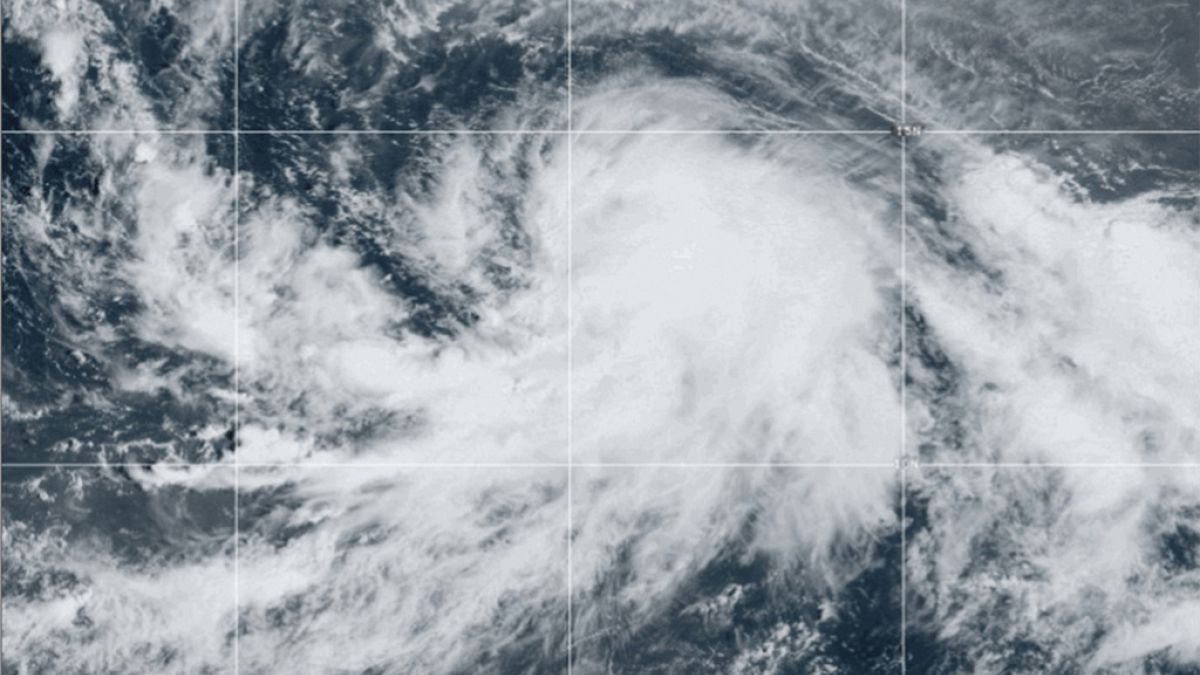A historic storm, Kirk, has caused significant damage in Portugal and Spain and left other countries on high alert. Originally a major hurricane, the storm peaked at category four status as it passed between Bermuda and the Azores in the mid-Atlantic. However, it has since weakened to a post-tropical storm. In Portugal, Kirk caused widespread flooding and left 300,000 people without power. The Civil Protection recorded almost 600 incidents on Wednesday, with most cases related to fallen trees. Spain also experienced heavy winds and rainfall, with waves as high as 7 meters crashing ashore in the northern part of the country. The strong gusts of wind led to rail and flight delays, closures of parks, collapsed roofs, and damaged property from fallen trees.
As Kirk continues to wreak havoc in Europe, other countries are preparing for its impact. Switzerland, Belgium, the Netherlands, and Northern Germany are all on high alert as the storm approaches. The MET office has issued an amber weather warning in Belgium, and France is also bracing for strong winds and heavy rainfall. The storm’s effects are far-reaching, with disruptions to transportation systems and damage to infrastructure reported in several countries. By staying vigilant and following safety precautions, residents can minimize the impact of the storm and ensure their well-being.
Emergency response teams are working tirelessly to address the aftermath of the storm and provide support to affected communities. In Portugal, efforts are focused on restoring power to the 300,000 residents left in the dark and clearing debris from flooded areas. Similarly, Spain is working to repair damage caused by the strong winds and rainfall, including fallen trees and collapsed roofs. As other countries in Europe face Kirk’s wrath, authorities are mobilizing resources to mitigate the storm’s impact and keep their populations safe.
The importance of preparedness and resilience in the face of natural disasters cannot be understated. As climate change continues to fuel extreme weather events, it is crucial for countries to invest in infrastructure improvements and emergency response measures. By proactively planning for storms like Kirk, governments and communities can minimize the damage and protect vulnerable populations. This includes early warning systems, robust communication networks, and well-coordinated emergency services. By working together and sharing resources, countries can build a more resilient society that can withstand the challenges posed by severe weather events.
In the aftermath of Storm Kirk, it is essential for affected communities to come together and support one another. The recovery process can be long and challenging, but by pooling resources and working collaboratively, residents can rebuild stronger and more resilient communities. International assistance may also be needed to provide aid to those hardest hit by the storm. By showing solidarity and compassion, countries can demonstrate their commitment to standing together in the face of adversity. Despite the destruction caused by Kirk, there is hope for a brighter future as communities rally together to overcome this shared challenge.
In conclusion, Storm Kirk has left a trail of destruction in Portugal and Spain and continues to threaten other countries in Europe. With high winds, heavy rainfall, and widespread flooding, the storm has tested the resilience of communities and highlighted the importance of emergency preparedness. By working together and supporting one another, affected countries can recover from the storm’s impact and build a more resilient future. As climate change intensifies the frequency and severity of extreme weather events, it is crucial for governments and communities to invest in infrastructure improvements and response measures. By learning from the lessons of Storm Kirk, countries can better prepare for future disasters and protect their populations from harm.










